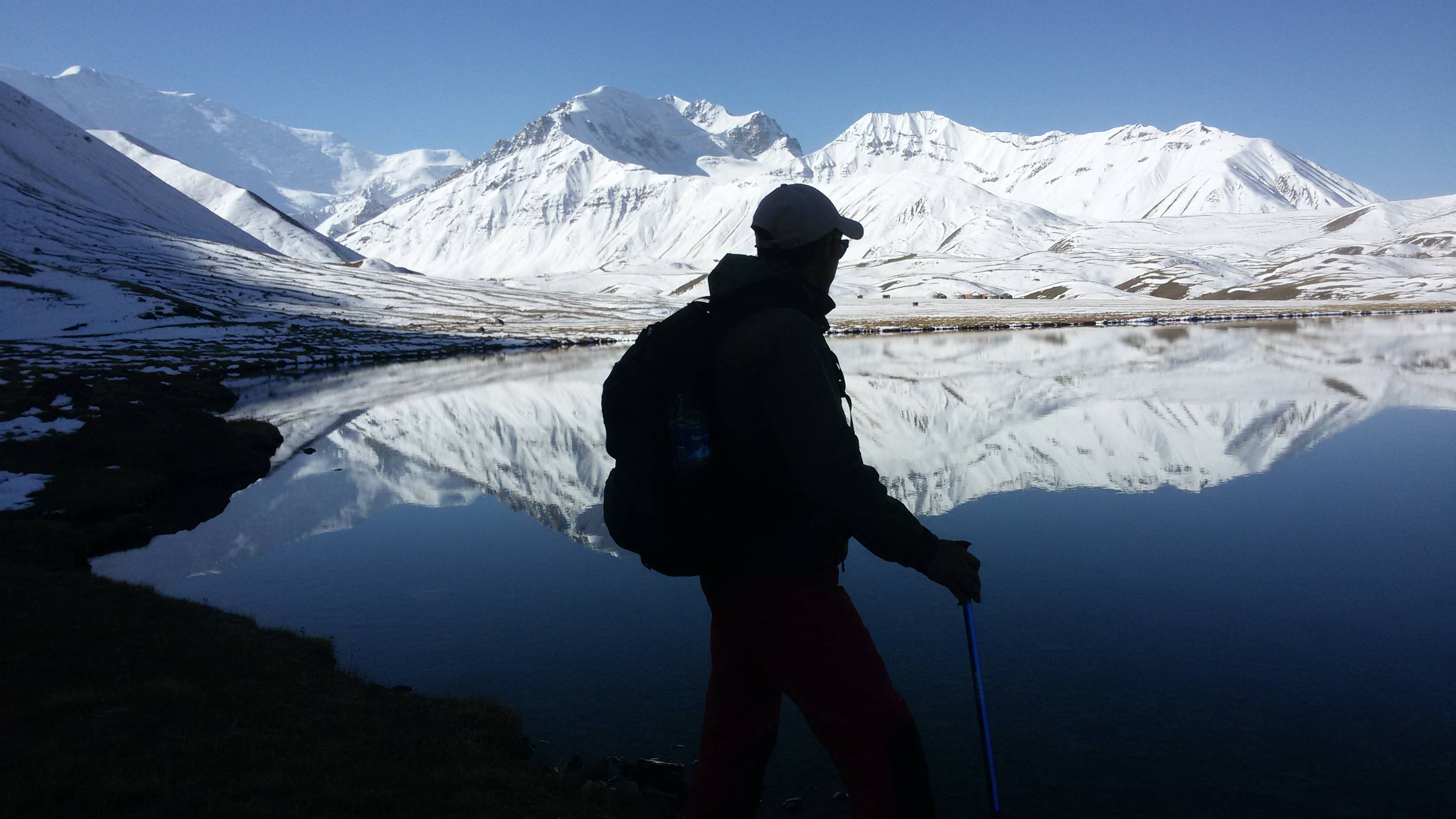
Tourism is one of the most important economic sectors in the Kyrgyz Republic. According to the National Statistical Committee, it accounted for 5.2% of GDP or 358 million USD by the end of 2019. The sector also employs about 40,000 people, 2% of the total formal employment in the country.
Untouched natural landscapes, mountains, more than 40,000 rivers and 750 lakes, historical and cultural heritage, mountain peaks, ski resorts, as well as the Lake Issyk-Kul, are attractions that make this country an ideal dream tourism destination. However, the tourism sector still faces numerous challenges, including the lack of supply chain and logistics facilities, poorly developed infrastructures, lack of resource efficiency and waste management, and low standard services for tourists.
As a response to these challenges, the State has developed the State Program for the Development of the Tourism Sector for 2019-2023 and the National Development Strategy of the Kyrgyz Republic for 2018-2040, which indicate the sustainability path that Kyrgyzstan has chosen to take through a more careful use and management of its natural resources, development of regions, ensuring environmental sustainability and reproduction, as well as expanding the diversity of forms of cultural life. With the support of national and international partners, the government together with tourism institutions have implemented a number of initiatives aimed at promoting the country as a sustainable tourism destination in the global market.
While the term “sustainable tourism” is still not widely known and used in the region, terms such as “nature tourism”, “responsible tourism”, and “green tourism” are increasingly being used, indicating the growing awareness of the need to switch to tourism models that will have less negative impacts on the environment, natural resources and local communities’ livelihoods.
Launched in 2020, EU SWITCH-Asia GREEN TOUR Project intends to accelerate the transition of Kyrgyzstan to a green economy by increasing the sustainability and competitiveness of tourism as a key sector, thereby contributing to the objectives set by the Kyrgyz Government. This four-year project is implemented by Helvetas, together with the Stichting European Centre for Ecological and Agricultural Tourism – Netherlands (ECEAT), the Kyrgyz Association of Tour Operators (KATO) and the Kyrgyz Community Based Tourism Association Hospitality Kyrgyzstan (KCBTA).
Targeting Kyrgyz tour operators, accommodation facilities, local suppliers and manufacturers (guides, drivers, caterers, host families, service and transport providers), local communities, and consumers (foreign visitors), the activities designed under the GREEN TOUR project aim to strengthen the capacity of tourism associations to provide corporate social responsibility (CSR) advisory services; environmental services and products into the supply chain of tour operators; support MSMEs in accessing green finance; and integrate Sustainable Consumption and Production (SCP) principles into the policies of Kyrgyzstan and Central Asia.
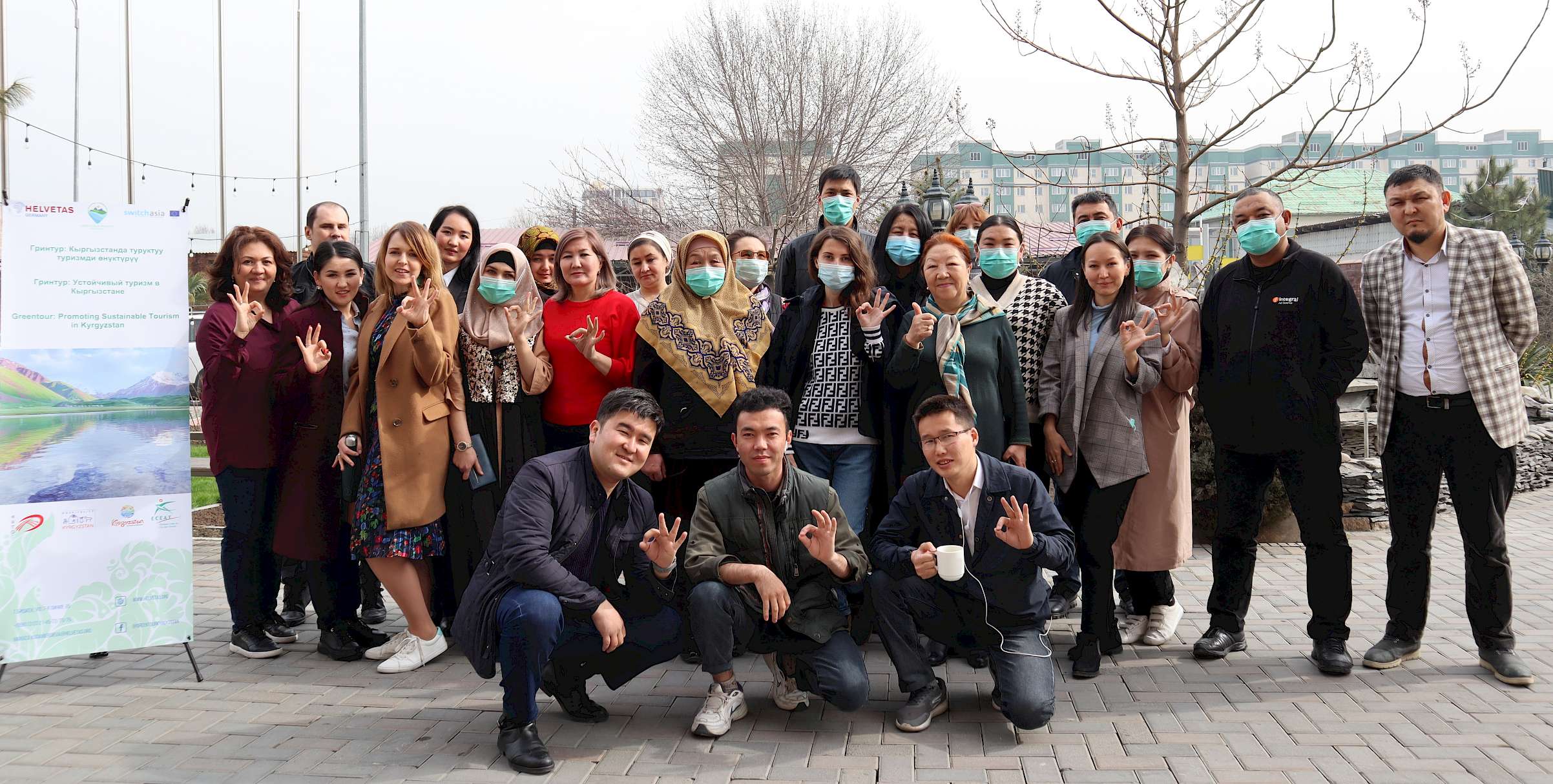
Since March 2020, in spite of the challenges posed by COVID-19 restrictions, a series of webinars have been organized and delivered, introducing CSR and SCP principles to tour operators, green recovery measures, and practical methods to reduce the amount of single-use plastics used in the travel and hospitality industry. More than forty representatives from tour operators, accommodation facilities, government agencies and experts in the community joined the webinars.
Moreover, an online course on “Resilience to COVID-19” was also designed and developed to support enterprises with practical advice on how to operate during the current restrictive circumstances, and steps forward for recovery. This course was also featured on the Travelife platform.
Supporting those that depend on tourism and building responsible travel experiences that are safe for host communities and travellers are key to accelerating post-COVID recovery. The pandemic is also an opportunity to rethink how tourism impacts natural resources and to advance the transition towards a green and climate resilient economy, said Mr. Eduard Auer, Head of the EU Delegation to Kyrgyzstan.
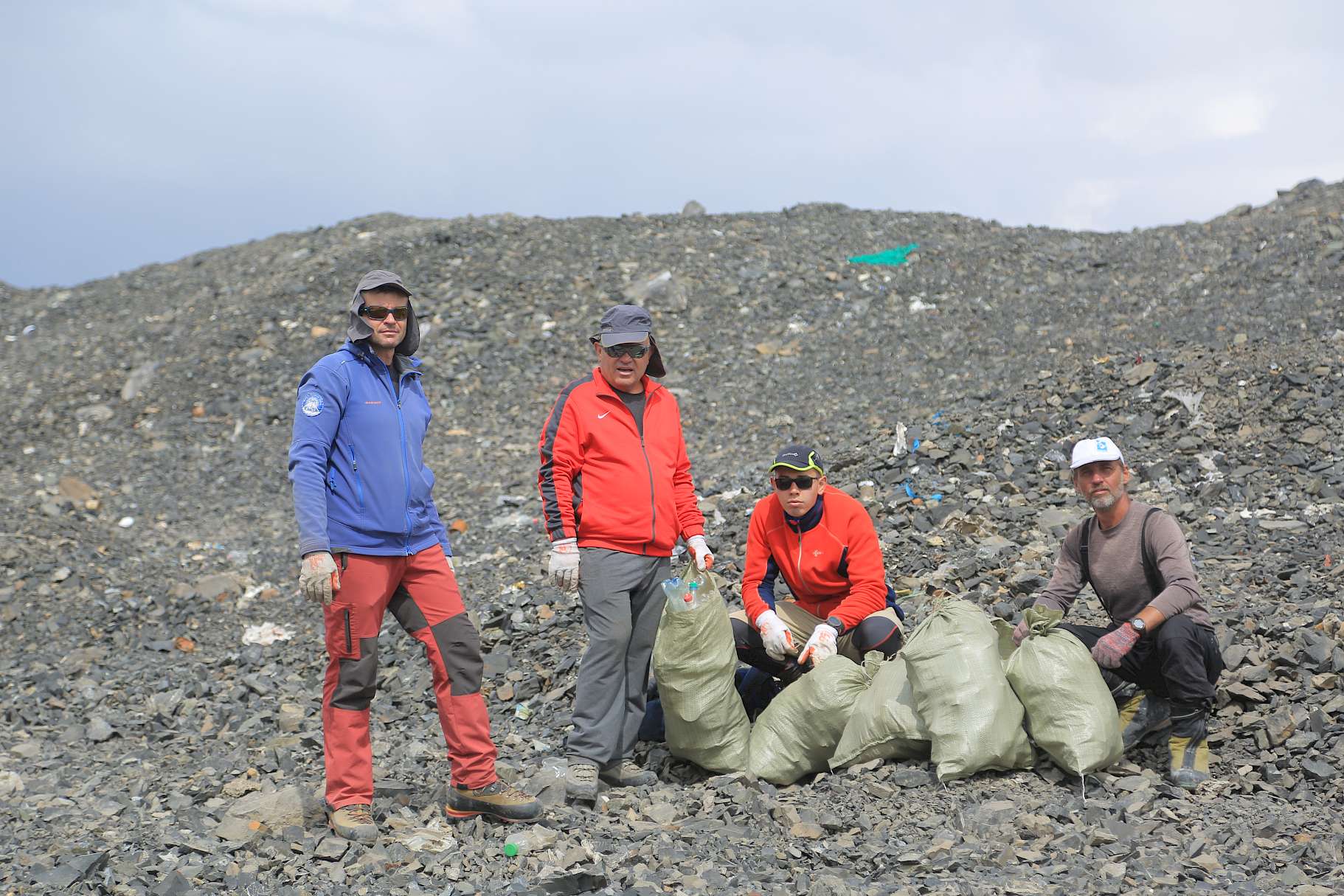
In August 2020, the project supported the initiative of the Department of Tourism under the Ministry of Culture, Information and Tourism of the Kyrgyz Republic to collect and dispose of household waste on the territory of Lenin Peak, one of the main tourist attractions of the southern part of the country. As a result of cleaning, 6.8 tons of garbage, accumulated over 30 years, were removed. Professional climbers and more than 30 volunteers from the local community were recruited for this event. They also took a special course on waste management.
GREEN TOUR and the waste collection and sorting Tazar App team signed a cooperation agreement to boost implementation of SCP practices among tourism businesses. Activities will include: functionality improvement, translation of the app into Kyrgyz, wide promotion among actors in the tourism sector.
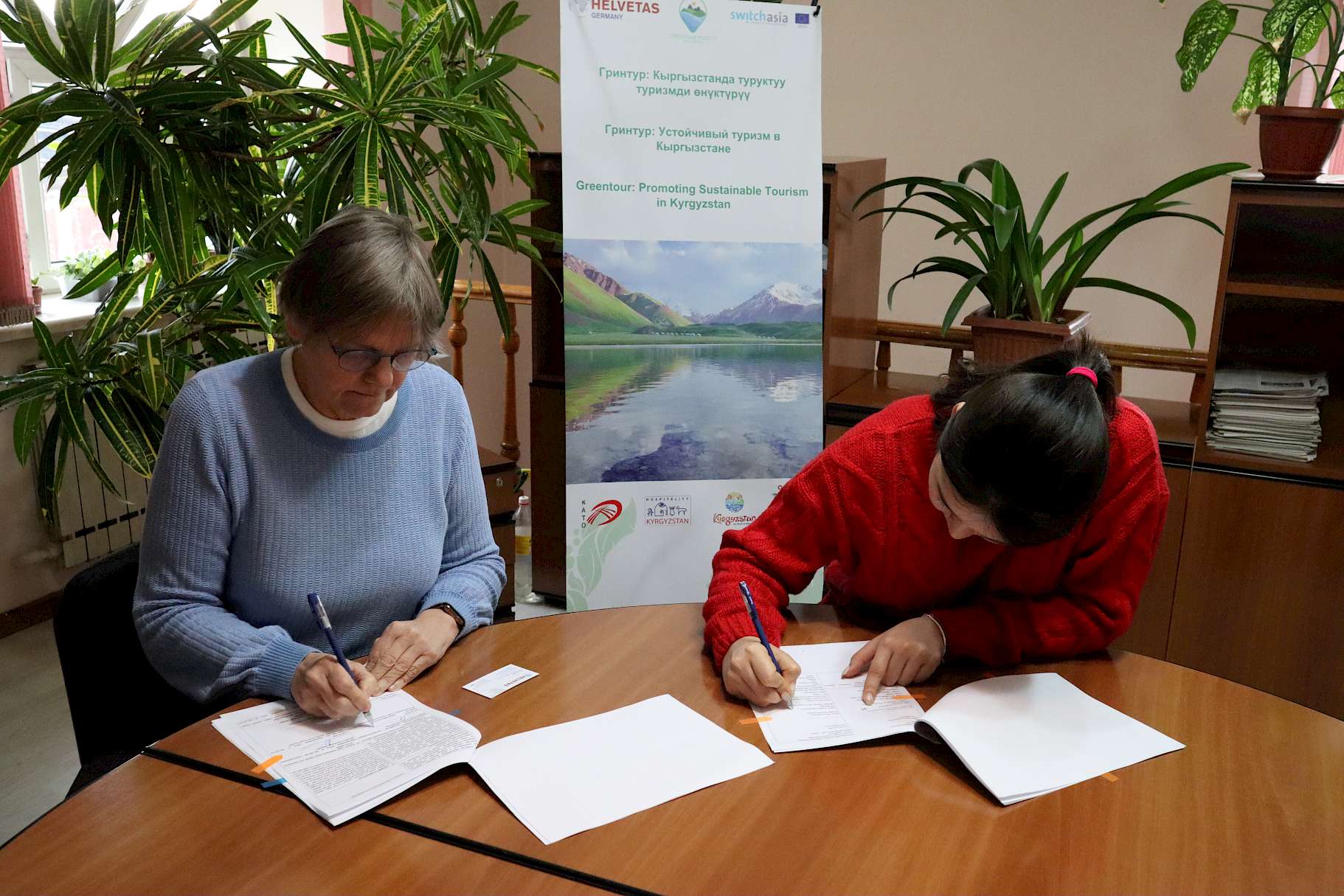
Following the easing of quarantine measures, the project held a series of sustainable management workshops for representatives of tour operators and accommodation facilities in three cities in Kyrgyzstan. Anula Galewska, an international tourism consultant, was invited to speak. During the workshops, over 150 participants had the opportunity not only to learn about sustainable tourism and management, but also to share their experience and knowledge, and network with potential partners. In addition, all participants received institutional and practical assistance on how to register in the Travelife programme. Seven companies were able to move to the second of the three stages of the programme, a proof of their commitment to sustainable and responsible tourism.
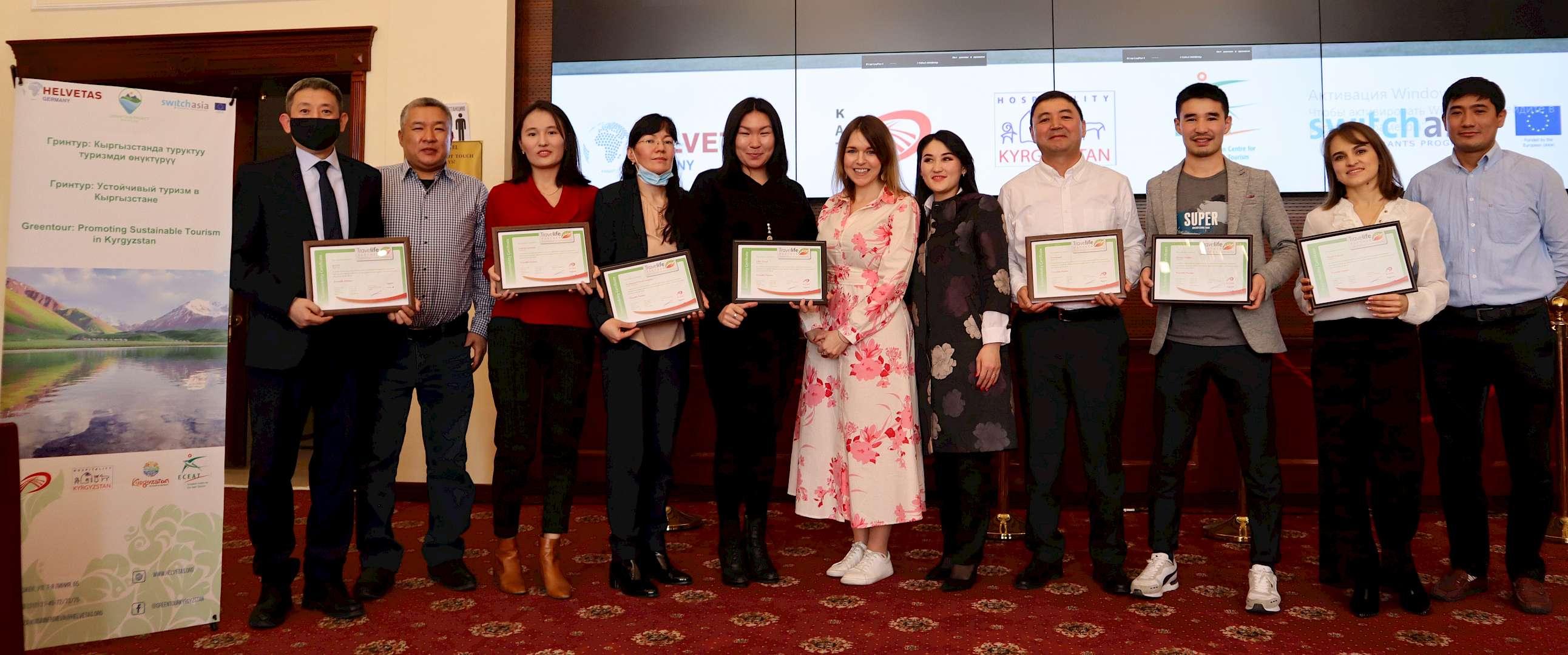
Change Happens on the Ground, Leading by Example
Regina Gataulina, International Guide for Central Asia, UNWTO and WFTGA accredited
The sustainable tourism concept is a must to follow. The key mission in my daily operations is to minimize negative impact on the community and environment, preserve cultural and natural heritage and maximize positive impact on the local economy. We stopped using single-use plastics and animals in our tours long before. We have adjusted our tours to cover regions in need and promote local handicrafts. The sustainability management course has helped me become even more responsible and make decisions that have a positive effect on the community. I am happy to see that the tourists have become more conscious and responsible in choosing the service providers committed to sustainability.
Abdirasul Akmatov, Eco House Osh Guest House owner/Chairman of Destination Osh Public Union
We started with a 4-room guest house in 2009, and today we have 12 rooms. This is a family business. In 2019 we began thinking about green technologies. The GREEN TOUR trainings on sustainability management greatly helped me understand that sustainability is not a costly investment. We can start taking small steps towards setting up a sustainable business. After the course, we became more aware of waste management operations. In 2021 we began sorting waste into: paper, glass, plastic and construction waste. Food waste is taken by our neighbors. The municipal waste collection service is pleased to pick-up the sorted waste.
Since 2019 we are also building a new hotel high in the mountains of Alai raion (www.pamiralpinehotel.com). The area has no electricity but we have installed solar panels. The hotel will be an eco-hotel with a proper waste management system. The knowledge gained in the sustainability management course has been extremely valuable in planning this new hotel.
Sergey Gluhoverov, Travel Experts, Tour Operator
Sergey has attended GREEN TOUR’s sustainability management courses and started implementing sustainability principles in his tours. Watch his video!


